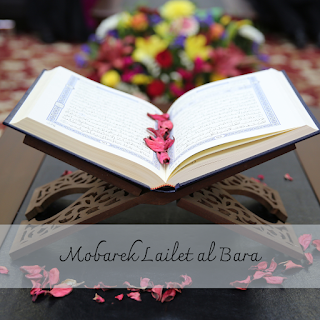About Al-Quran:
The Quran, also spelled Al-Quran or Koran, is the holy book of Islam, believed to be the word of God (Allah) revealed to the Prophet Muhammad (peace be upon him) through the Angel Gabriel. The revelation spanned approximately 23 years, beginning with the first verses revealed in the cave of Hira near Mecca in 610 CE. The Prophet Muhammad memorized the verses, and his companions did the same. The Quran was later compiled into a book during the caliphate of Uthman ibn Affan, the third caliph, around 650 CE. It consists of 114 chapters known as surahs, which vary in length. The longest surah is Al-Baqarah, and the shortest is Al-Kawthar. The Quran is renowned in classical Arabic for its eloquence and linguistic beauty, Considered miraculous.
The Quran addresses
various topics, including the oneness of God (Tawhid), the roles of prophets
and messengers, guidance on personal conduct and social justice, rituals like
prayer, fasting, and pilgrimage, and beliefs in the afterlife, resurrection,
and accountability. Muslims regard the Quran as a miracle due to its linguistic
perfection, scientific accuracy, and prophecies. It challenges humanity to
produce anything comparable, underscoring its divine origin.
The Quran is intended to
be recited and memorized, and those who commit the entire Quran to memory are
honored with the title Hafiz (for males) or Hafiza (for females). Reciting the
Quran is an act of worship that brings spiritual reward. To make its teachings
accessible to people worldwide, the Quran has been translated into many
languages.
Tafsir refers to the
detailed explanations and interpretations of Quranic verses by scholars.
Renowned tafsirs include those by Ibn Kathir, al-Jalalayn, and al-Saadi. The
Quran serves as the ultimate source of guidance for Muslims in matters of
faith, practice, and daily life, offering solutions to moral dilemmas, legal
issues, and spiritual questions.
Studying the Quran
requires sincerity, humility, and an open heart. Muslims strive to understand
its deeper meanings and apply its teachings to lead righteous lives.
Scientific Miracles in the AL Quran:
The Quran, the holy book
of Islam, contains several remarkable scientific insights that continue to
amaze and intrigue people worldwide. For example, it describes the development
of the human embryo in stages, mentioning the creation of humans from a
"clot of blood" (Alaqah) and the gradual formation of organs and
limbs. This description aligns with modern embryology.
The Quran also explains
the water cycle, noting that water evaporates, forms clouds, and falls as rain
(Surah Al-Muminun, 23:18), a concept that predates modern meteorology and
hydrology. Additionally, the Quran emphasizes that all living things are
created from water (Surah Al-Anbiya, 21:30), a fact confirmed by modern
science, which shows that water is essential for life and makes up a
significant portion of living organisms.
The Quran refers to iron as being "sent down" from the sky (Surah Al-Hadid, 57:25), and scientists now understand that iron is abundant in Earth’s core and was formed during cosmic processes. Furthermore, the Quran describes mountains as stakes or stabilizers (Surah An-Naba, 78:7). Modern geology recognizes the role of mountains in stabilizing Earth's crust and preventing excessive tectonic movements.
Fingerprints:
The Quran highlights
that humans’ fingertips bear unique patterns (Surah Al-Qiyamah, 75:4). Today,
fingerprint analysis is a crucial tool in forensic science. It's important to
note that these scientific insights were revealed in the Quran centuries ago,
long before modern science confirmed them. They are seen as evidence of the
Quran’s authenticity and its divine origin.
QURAN VIEW ON COSMOLOGY:
The Quran mentions the
concept of an expanding universe: “And the heaven, We built with Our own
powers, and indeed We continue to expand it” (Surah Adh-Dhariyat, 51:48). This
idea predates Edwin Hubble’s 1920s discovery and aligns with the Big Bang
theory. Additionally, the Quran describes the universe's initial state as being
like smoke: “Do not the unbelievers see that the heavens and the earth were a
closed-up mass, then We clove them asunder, and We made from water every living
thing” (Surah Al-Anbiya, 21:31). This reflects the concept of the singularity
before the Big Bang.
BLACK HOLES:
Prophet Muhammad (peace be upon him):-
Prophet Muhammad (peace
be upon him) holds a central place in Islamic history and is revered as the
last messenger of God. Born around 570 CE in Mecca, Arabia (now Saudi Arabia),
he was orphaned at a young age and raised by his grandfather and later by his
uncle. At the age of 40, Muhammad received his first revelation from the Angel
Gabriel in the cave of Hira, marking the beginning of his prophetic mission. He
began preaching monotheism and the message of Islam.
In 622 CE, facing persecution in Mecca, Muhammad and his followers migrated to Medina, an event known as the Hijra. This migration marks the beginning of the Islamic calendar. In Medina, Muhammad established a community (ummah) grounded in justice, compassion, and unity, serving as a spiritual leader, judge, and statesman.
Revelation of the Quran.
Over 23 years, the Quran was revealed to Muhammad, providing guidance on faith, morality, law, and social justice. Muhammad exemplified humility, kindness, and honesty, and he emphasized the importance of prayer, charity, and good deeds. Despite facing strong opposition from the leaders of Mecca, he led his followers through defensive battles, such as the Battle of Badr and the Battle of the Ditch. The Treaty of Hudaybiyah later established a period of peaceful coexistence. In 632 CE, Muhammad performed his Farewell Pilgrimage (Hajj). He passed away on June 8, 632 CE, in Medina.
Legacy and Impact:
Muhammad’s teachings
revolutionized Arabian society and left a lasting legacy that continues to
inspire millions of Muslims worldwide. In summary, Prophet Muhammad’s life was
a model of devotion, resilience, and compassion, with a profound impact on
history and faith.
















1 comments:
Prophet Mohammad was called Al Amin. People trust him so much.
Post a Comment